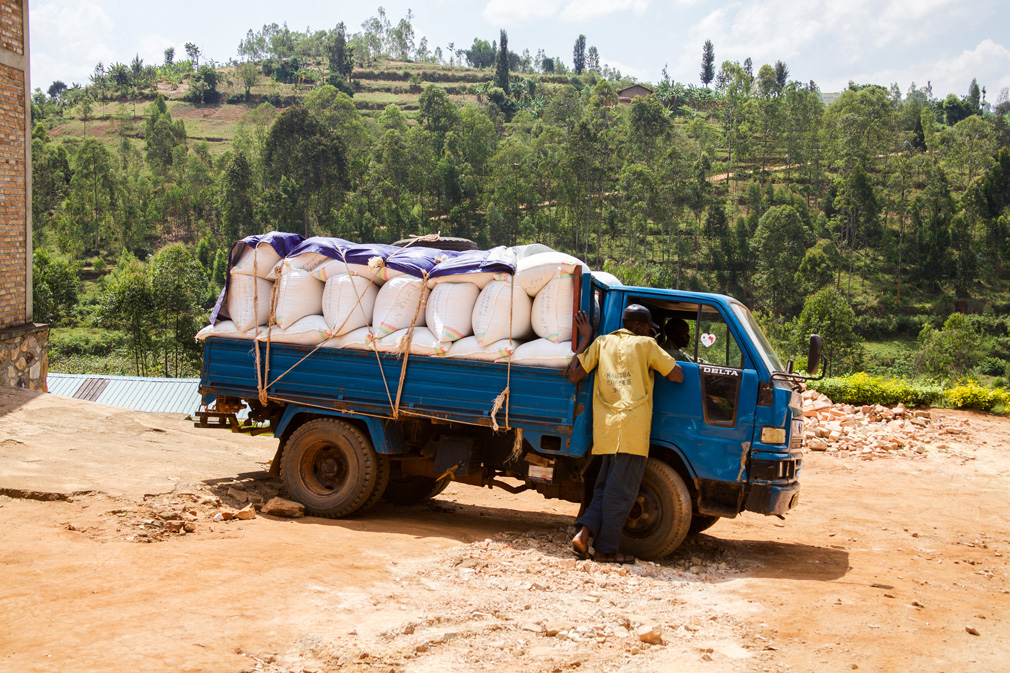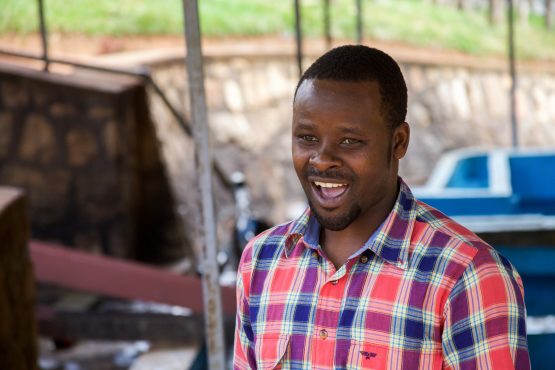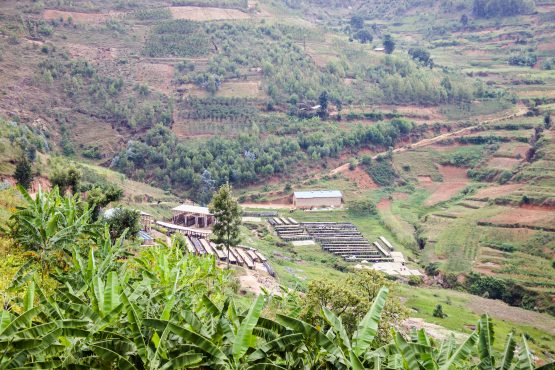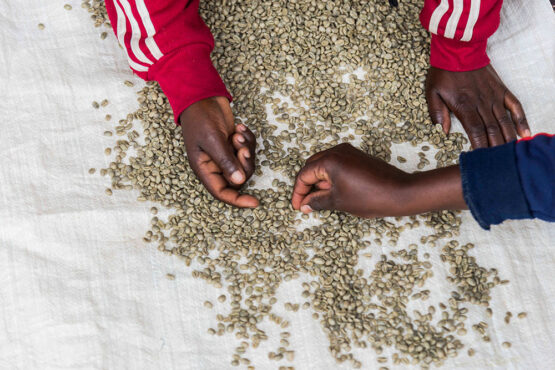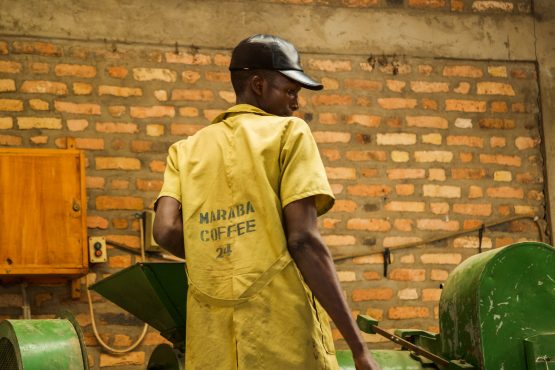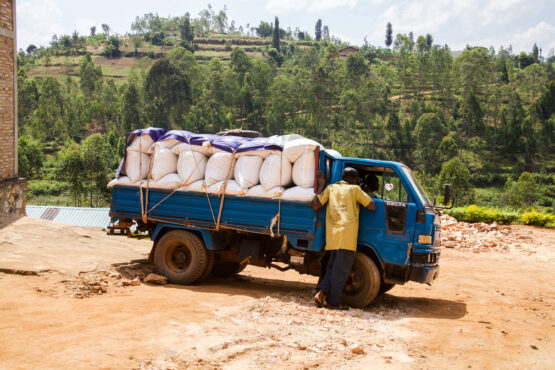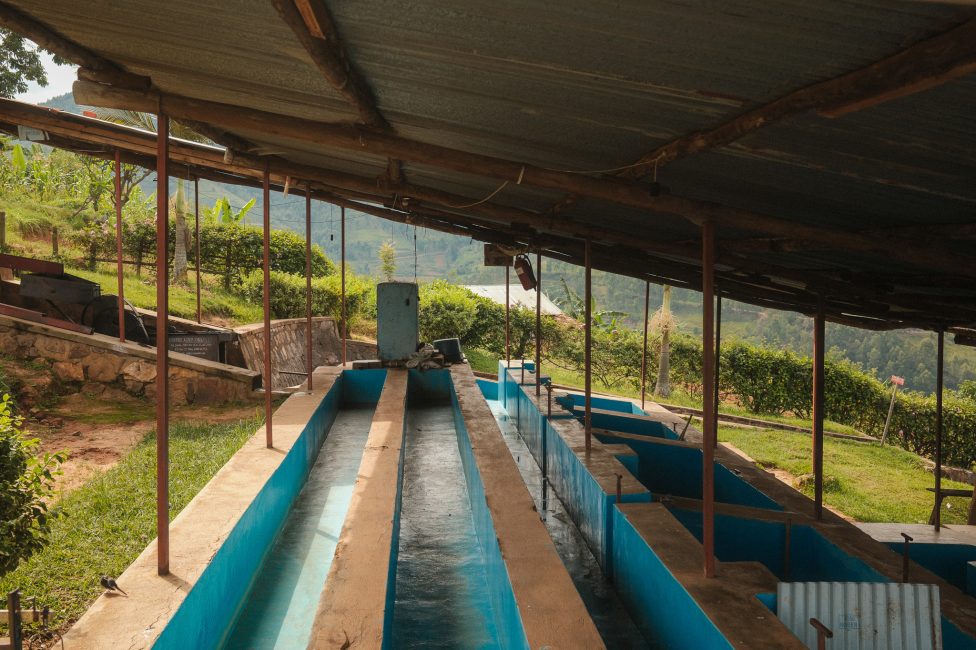Maraba Sovu
Crisp and juicy, with lime acidity, pineapple and greengage plum. Brown sugar sweetness, with chamomile florals and a long, clean finish.
This 1,200kg micro-lot was produced by smallholder coffee producers who farm in the hills surrounding Sovu washing station. The washing station is located in the Huye Sector of Huye District, in Rwanda’s Southern Province. It is owned and operated by the Abahuzamugambi Ba Kawa Maraba Cooperative (known as ‘Maraba’), who own three other washing stations in the district. Like most of the coffee that is grown in Rwanda, this lot is 100% Red Bourbon.
Sovu washing station was established in 2005 and is the smallest of Maraba’s washing stations, servicing about 397 cooperative members who farm locally and 8 individual farmer groups. The washing station sits in the high, rugged mountains of Rwanda’s Southern Province. Quality control and day to day operations are overseen by Remy Haganje, who is supported by the Head of Quality Control, Christine Ilibagiza.
Maraba, and specifically the Sovu washing station, has consistently been recognised for quality including numerous Cup of Excellence awards in 2008, 2011, 2012, 2013, and 2015. This is no small accomplishment, and this year’s offering is right up there with these exceptional lots. The cooperative has recently upgraded cherry sorting equipment and a water treatment facilities at each of their washing stations. They have also constructed a warehouse, where the coffee is safely stored before being transported to Kigali for final stages of milling and preparation for export.
The area around Sovu washing station has ideal growing conditions for high-quality coffee, with high elevations, good rainfall and steady, cool temperatures year-round. Typically, farms are very small – averaging just a fifth of a hectare and are situated around 1,800 meters above sea level. Most washing stations in Rwanda receive cherry from hundreds (and sometimes thousands) of farmers who own very small plots of land. Separation of such tiny lots is expensive and impractical, so the large majority of coffees are processed as a mixed lot from multiple producers. Typically, lots are separated as day lots (ie. cherries that were all picked on the same day) rather than from a single farm or producer group.
Head here to learn more about the work of Maraba Cooperative.
PROCESSING AT MARABA SOVU WASHING STATION
The team at Sovu Washing Station take a huge amount of care in sorting and processing their coffee. They own their own dry mill which enables them to control quality all the way through to export.
- Cherries are delivered to the washing station on the same day as they are picked and are inspected and sorted to ensure only the very ripest cherries are processed. They are then put into a floatation tank and sorted by weight (and any floaters removed) and pulped on the same day—almost always in the evening—using a mechanical pulper that divides the beans by weight (the heaviest usually being the best).
- After pulping, the coffee is fermented overnight for around 12–18 hours and then graded again using floatation channels that sort the coffee by weight. The beans are then soaked for a further 24 hours before being moved to raised screens for ‘wet-sorting’ by hand. All water used during the processing comes from a natural spring with water from the mountains.
- As with most washing stations in Rwanda, women do the majority of hand-sorting. This takes place in two stages—on the covered pre-drying tables and on the drying tables. Washed beans are moved from the wet fermentation tanks onto the pre-drying tables, where they are intensively sorted under shade for around six hours. The idea is that green (unripe) beans are still visible when they are damp, while the roofs over the tables protect the beans from the direct sunlight.
- Next, the beans are moved onto the washing station’s extensive raised drying tables (‘African Beds’) for around two weeks, where they are sorted again for defects, turned regularly and protected from rain and the midday sun by covers, ensuring both even drying and the removal of any damaged or defective beans. During this period, the coffee is also turned several times a day by hand to ensure the coffee dries evenly and consistently.
- After reaching 11% humidity, the coffee is stored in parchment and then when adequately rested it is carefully dry milled at the cooperative’s brand new dry mill in Huye.
WHY WE LOVE IT
Coffees from Huye District are characterised by heavy sweetness and juicy character. We’re excited to purchase this coffee, as it supports the farmers who contribute to the Sovu washing station. We love this coffee for its distinct flavour profile, with greengage plum and chamomile florals in the cup.
